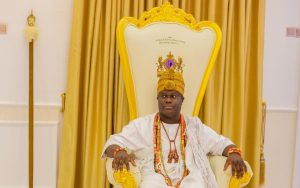Protests erupt for second night in Belarus over disputed election result

Svetlana Tikhanovskaya demanded a recount after the country’s Central Election Commission announced that Alexander Lukashenko had won with 80.23% of the vote, while Tikhanovskaya stood at 9.9%.”I believe my own eyes, the majority was for us,” Tikhanovskaya said in a news conference on Monday, according to multiple local media reports. “We do not recognize the election results. We have seen real protocols. We urge those who believe that their voice was stolen not to remain silent.”The 37-year-old said that she was ready to meet Lukashenko to discuss bringing “peaceful change of power.” She later “left to an unknown location” according to her campaign.Riots erupted after official exit polls were released late Sunday, showing a victory for Lukashenko, and resumed the following day. Around 3,000 people were detained and dozens injured during clashes with police, the interior ministry said in a statement seen by state-run news agency Belta.On Monday, Lukashenko said he would not “allow the country to be torn apart,” claiming that the protests were initiated by “foreign puppeteers,” Belta reported. “So Lukashenko — who is at the top of the vertical of power, the head of the state, voluntarily, with 80% of the votes — must transfer power to them? This is all coming from abroad,” he said.He added that law enforcement would not back down before protesters. “Riot officers were wounded, there are broken arms and legs. These guys were deliberately hit and they have pushed back. Why sob and cry now? The response will be adequate,” Lukashenko said.Amnesty International has condemned the police’s response to protesters in Minsk.Meantime, Twitter said Monday it was seeing “blocking and throttling” of its platform in Belarus in reaction to the protests.NetBlocks, an NGO that tracks internet shutdowns worldwide, said in a tweet Monday: “It has been almost 24 hours since Belarus fell largely offline after a series of worsening internet disruptions during Sunday’s elections.A controversial election resultTikhanovskaya’s campaign and independent observers say the vote was marred with widespread ballot stuffing and falsifications. Independent monitoring group “Honest people” said at Tikhanovskaya’s news conference that, according to its data, she won in at least 80 polling stations across Belarus. Monitoring organization Golos said it counted more than a million ballots and, according to its calculations, Tikhanovskaya won 80% of the vote.Late on Monday, Tikhanovskaya “left to an unknown location” after filing a complaint at the Central Elections Committee building, her press secretary Anna Krasulina said in a live on-air interview with MBkH media. “She went inside the Central Elections Committee building, the team and the journalists stayed outside. There’s a waiting hall inside and she entered with the lawyer,” Krasulina said. “Then she was alone for two to three hours having a conversation without the lawyer [inside the CEC building]. Then Svetlana came out to the lawyer, said that she made up her mind, said goodbye to him. Then she was escorted through a different door and left to an unknown location.”Tikhanovskaya’s campaign later said they were back in touch with her and she was “all right,” but did not supply any further details.’Seriously flawed’ electionsMany Western nations condemned the election. US Secretary of State Mike Pompeo said the US was “deeply concerned about the conduct of the August 9 presidential election in Belarus, which was not free and fair.”He added, in a statement,”Severe restrictions on ballot access for candidates, prohibition of local independent observers at polling stations, intimidation tactics employed against opposition candidates, and the detentions of peaceful protesters and journalists marred the process.” The UK government urged Belarus to “refrain from further acts of violence” following the “seriously flawed” elections.”The violence and the attempts by Belarusian authorities to suppress protests are completely unacceptable,” Foreign Office Minister James Duddridge said in a statement Monday.The statement continued: “There has been a lack of transparency throughout the electoral process in addition to the imprisonment of opposition candidates, journalists and peaceful protestors.”In a written statement as part of a news briefing, the French Foreign Ministry said on Monday: “Results must be made public in a complete and transparent manner.”We are also noting with concern that protesters who demonstrated after the closure of polling stations have been met with violence, and we call for maximum restraint.” The UK and France both expressed concern over Belarus’ failure to allow the Organization for Security and Co-operation in Europe (OSCE) and the Council of Europe to observe the electoral process.’Europe’s last dictator’Tikhanovskaya, a former English tutor, became an unexpected rival to Lukashenko, and the face of the opposition after taking over from her husband, Sergey Tikhanovskiy, a popular YouTube blogger and former candidate who has been jailed since May.Her campaign rallies saw significant turnouts even in small Belarusian towns not known for their protest activity. About 63,000 people attended the largest event in Minsk in July — making it the biggest demonstration in the past decade.Tikhanovskaya joined forces with two women who ran other opposition campaigns after their candidates were also either barred from running or jailed. Lukashenko had dismissed them as “poor girls” in his annual state of the union address on Tuesday and said he will not “give the country away.”The night before the election, Tikhanovskaya’s campaign said she had fled her apartment and gone into hiding due to safety concerns after police detained several senior staffers. Critics called the move an attempt to intimidate the opposition ahead of the crucial vote. Her adviser, Veronika Tsepkalo, fled Belarus for Moscow for safety reasons, the campaign said on Sunday.Tikhanovskaya’s campaign manager Maria Kolesnikova was also taken to a police station for questioning on the eve of the vote. A day before that, campaign manager Maria Moroz was briefly detained.Tikhanovskaya first disputed the results at a news conference late Sunday, with her campaign maintaining that she had won in dozens of polling stations in Minsk at that stage.On Monday, the chief of the European Council criticized Belarus for attempting to quash protests. “Violence against protesters is not the answer Belarus,” Charles Michel said on Twitter. “Freedom of speech, freedom of assembly, basic human rights must be upheld.”Nicknamed “Europe’s last dictator,” Lukashenko has ruled the former Soviet republic of more than 9 million people since 1994. He has long drawn international criticism for suppressing dissent, and the country’s secret police — still known as the KGB — often detain and harass opposition activists and independent journalists.In the run-up to the election, law enforcement seemingly stepped up its crackdown efforts as riot police made multiple arrests to break up impromptu demonstrations against the President. Local media outlets warned of a possible internet shutdown in case protests erupted across the country.Framed as one of the toughest challenges to Lukashenko’s 26-year-long rule, it was the Belarus strongman’s sixth reelection campaign. Thousands of opposition supporters had poured onto the streets in recent weeks to voice discontent with the country’s economic situation, poor coronavirus response, and lack of personal freedoms and reforms.The poll saw a massive turnout, according to official data, with the country’s Central Election Commission saying Monday that the official turnout was at 84.23%. Independent observers in Belarus, such as the “Honest people” group, said they had also found significant discrepancies between the officially announced turnout and the number of people entering polling stations that they were able to count.Most independent observers were barred from monitoring the election. Dozens of independent observers were detained on Saturday and early Sunday, according to the “Honest people” and “Right to choose” initiatives.The OSCE said in July it would not be sending observers to Belarus as it hadn’t been invited by the country’s authorities.Journalist Mikalai Anishchanka in Minsk and CNN’s Barbara Wojazer, Sebastian Shukler and Sarah Dean contributed.







